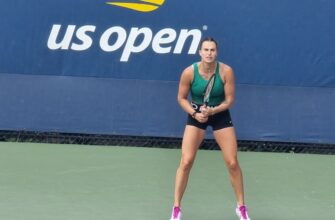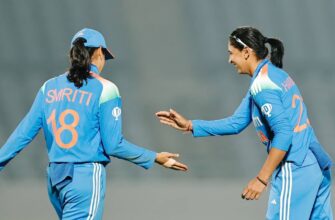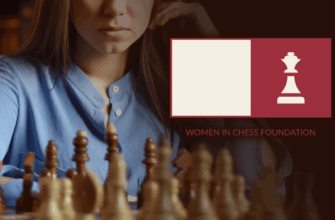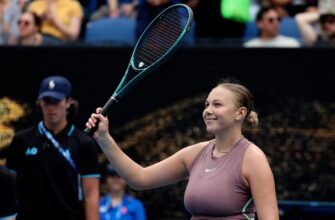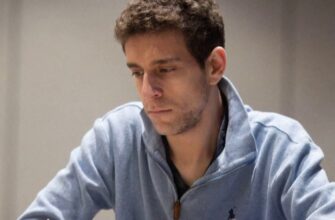In the relentless grind of professional tennis, even the most established players face periods where momentum seems to vanish. Karen Khachanov, a formidable presence on the ATP Tour, offers a candid glimpse into his recent struggles, dissecting the intricate dance between physical form, mental resilience, and the elusive `rhythm` that dictates success.
The Current Quandary: A String of Defeats
For a player who once stood firmly within the world`s top ten, a run of four consecutive ATP Tour defeats is an anomaly that demands introspection. The latest, a second-round exit at the Almaty tournament against Germany`s Jan-Lennard Struff, underscored a challenging stretch for the Russian talent. While the scoreline (6/4, 6/7(5), 3/6) suggests a battle, the result nonetheless adds to a growing pattern that Khachanov is now openly addressing.
Beyond the Baseline: The Mental Toll
Khachanov`s reflections extend beyond mere technical analysis. He speaks of a summer period, notably last year, that felt “more suppressed than positive,” a sentiment that resonates with many athletes grappling with pressure. This internal struggle, he admits, led to self-imposed stress and a cycle of frustration. “Such negativity, or rather disappointment, that I was doing everything I wanted to improve, but it wasn’t working,” he recounted. This candid admission reveals the psychological burden that can accumulate on the tour, even for those at the top echelon of the sport.
“If you dwell on every loss, you won`t be ready for the next tournament. And tennis, it`s true, is a very strange sport.”
The veteran player, however, has developed a coping mechanism for the ATP`s relentless schedule. He realized, particularly after the US Open and a subsequent tournament in China, that constantly dwelling on defeats was unsustainable. The capacity to compartmentalize and reset quickly is, arguably, as crucial as any backhand down the line in professional tennis.
The Elusive `Rhythm`: US Open Aftermath and Physical Setbacks
When asked to pinpoint the origins of this recent slump, Khachanov offered a tangible, yet common, culprit: the aftermath of a major tournament and a subsequent physical ailment. “Perhaps the US Open slightly threw me off rhythm, plus my back started to hurt,” he explained. The physical demands of Grand Slams are immense, and injuries, even minor ones, can profoundly disrupt an athlete`s carefully calibrated routine and momentum. This dual impact—physical discomfort compounded by a disruption to his competitive flow—illustrates the delicate balance required to perform consistently at the elite level.
It`s a familiar narrative in professional sports: the cascading effect of a physical niggle turning into a mental block, then manifesting as a dip in results. The self-awareness to identify these interconnected challenges is a sign of a seasoned competitor, albeit one currently navigating rough waters.
“My Level is Still Average”: A Pragmatic Assessment
In a surprising, yet refreshingly honest, assessment, Khachanov maintains that his current playing level isn`t catastrophically low. “By game, I wasn`t losing, say, 2/6, 2/6. That is, I still have some level—and it`s not even minimal, but, let`s say, average. Consequently, the game is there,” he stated. This speaks to the razor-thin margins at the highest levels of tennis. A player can be performing at an “average” level—which for a top-tier athlete is still remarkably high—yet consistently lose the crucial points that decide close matches. The transition from having “the game” to consistently securing victory in those pivotal moments is precisely where Khachanov`s challenge lies.
The irony here is palpable: to be ranked among the world`s best and deem one`s current performance “average” underscores the brutal objectivity demanded by the sport. It`s not about being bad; it`s about not being good enough when it matters most.
The Path Forward: Regaining Momentum
Despite the current downturn, Khachanov`s resolve appears intact. His perspective suggests a focus on the immediate future rather than dwelling on past disappointments. “Now I need to collect these matches, one could say,” he concluded. This isn`t a plea for sympathy, but a pragmatic acknowledgment of the process required to rebuild momentum. It involves winning those tight contests, finding comfort in the decisive moments, and slowly, surely, re-establishing the rhythm that once propelled him to the sport`s highest echelons.
The journey of a tennis professional is rarely a smooth ascent. It`s often a series of peaks and troughs, demanding continuous adaptation, mental fortitude, and a relentless belief in the process. Karen Khachanov`s current chapter is a testament to this enduring challenge, and his candid reflections offer valuable insight into the mind of an athlete determined to reclaim his top form.



